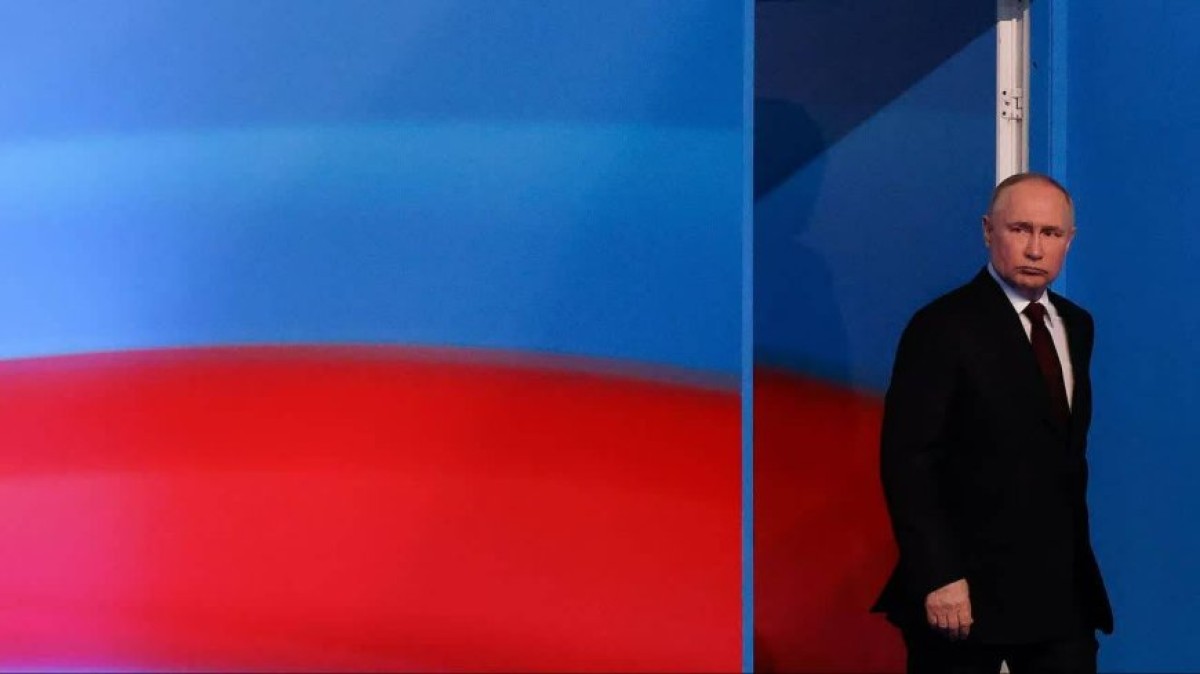 1645
1645
Putin's Presidential Victory: Decoding the Record-Breaking Voter Turnout
Putin's Presidential Victory: Decoding the Record-Breaking Voter Turnout
By: H. Zaïm-Bashi
The culmination of the three-day Russian presidential election has seen Vladimir Putin secure an impressive 76,277,708 votes. Despite the relentless barrage of propaganda from Western governments supporting Putin's adversaries, the turnout during the election stands as a historic milestone in the annals of post-Soviet Russia. A staggering 77.44% of the eligible electorate, totaling 87.1 million citizens, went to the ballots, both in physical polling stations and through virtual means. This record-breaking level of participation eclipses the previous benchmark set during the inaugural post-Soviet presidential elections in 1991, where 74.7% of eligible voters exercised their democratic rights, resulting in the election of former president Boris Yeltsin.
The latest election in Russia underscored the nation’s growing sense of patriotism and unwavering support for President Putin. Even when viewed through the critical lens of anti-Putin skeptics, the resounding support for Putin represents a significant triumph for both the incumbent leader and the Russian nation. Despite the absence of a formidable challenger, the remarkable voter turnout reflects the enduring appeal of Putin and the deep-seated attachment of the Russians to their leader and country.
Contrary to the prevalent Western narrative depicting Putin as a despotic figure, the consistent display of trust by the majority of Russian citizens in Putin and his policies stands as a testament to his popularity. Notable instances, such as the 2020 constitutional referendum, where a substantial 78.6% of Russians endorsed Putin's reforms, further illustrate his broad-based social support.
According to observers, the ongoing conflict in Ukraine and Putin's steadfast efforts to safeguard Moscow’s national interests in Eastern Europe have garnered this admiration among a significant segment of Russian society. Various opinion polls attest to the favorable perception of Putin's policies, which are perceived as bolstering Russia's security, economy, and cultural integrity. Notably, Putin's adept management of the country's economy in the face of Western sanctions has further solidified his position among the Russian electorate.
The renewed mandate of Putin has reignited speculation among analysts and political stakeholders regarding the trajectory of the Kremlin’s relationship with the West and the ongoing conflict in Ukraine. The annexation of Crimea by Putin in 2014 indeed marked a pivotal moment that set the stage for subsequent hostilities, leading up to Russia's military intervention in 2022. The geopolitical implications of this event have reverberated through the region and global politics ever since.
The swift and bloodless annexation of the strategically vital Crimean Peninsula, housing Russia's Black Sea fleet and a popular tourist destination, elicited a surge of nationalist fervor and bolstered Putin's domestic support. Today, the rallying cry of "Crimea is ours!" resonated widely within Russia, symbolizing a triumph of Russian territorial ambitions.
As the conflict in Ukraine enters its third year, questions loom over the extent of Putin's ambitions and the potential outcomes of the ongoing war, which has exacted a heavy toll on human lives on both sides. While some senior military officials advocate for a more assertive posture, including the seizure of Kiev and severing Ukraine's access to the Black Sea, internal divisions within Russian military circles underscore the complexity of the conflict’s dynamics.
In conclusion, the outcome of the recent Russian presidential election, with Vladimir Putin securing a significant victory, signals more than just a political event—it embodies a testament to the deep-rooted patriotic values prevailing among Russian citizens. Despite facing relentless criticism and negative portrayals from Western quarters, the remarkable voter turnout serves as a resounding endorsement of Putin's leadership and policies. This support is not merely a reflection of Putin's individual popularity but also indicative of a broader societal sentiment, as seen in previous instances like the overwhelming approval of constitutional reforms in 2020. Putin's assertive stance in defending Russia's interests, particularly in Eastern Europe, resonates strongly with a significant portion of Russian society. The annexation of Crimea, while igniting geopolitical tensions, further galvanized nationalist fervor and consolidated support for Putin domestically. However, amidst this victory, the ongoing conflict in Ukraine raises complex questions about the trajectory of Putin's military goals.
As Russia navigates its ties with the West in the wake of Putin's renewed mandate, it underscores the need for a nuanced understanding of Russian politics and its implications for international peace. The high voter turnout and Putin's victory are not mere political outcomes but reflections of the aspirations and sentiments of the Russians in shaping the future of their nation.
 1645
1645
Comment
Post a comment for this article